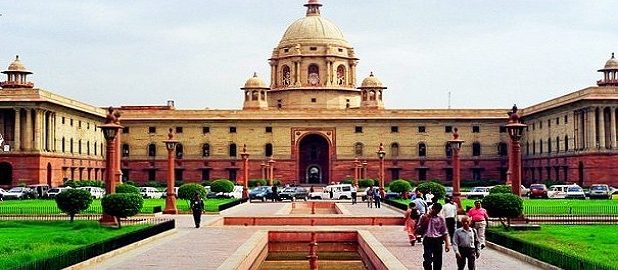“Remove all hawkers from Delhi’s roads: Supreme Court” screams a front page headline in The Hindu, Delhi edition, May 6, 2006. Tired of just emotionally reacting to such news and actions, we thought of doing some basic thinking and reading.
The preamble speaks of giving justice, economic to people of India. It again talks of offering equality of opportunity, and further promises dignity of the individual. In fact, shouldn’t we remove the epithet ‘socialist’ now that it doesn’t seem applicable. Somewhere, we see the Prime Ministers and their cabinets, the Delhi CMs and ministers not faithfully discharging their fundamental duties. Hawkers, are you reading this.
The pillar of democracy is people participation, or rather participation by numbers. Some even say it is a tyranny of majority, yet majority nonetheless. Also basic statistical thought reveals that large number bases are better representative than small samples. Now in elections, the adult franchisors cast ballot in lacs, and the nation’s representatives are therefore reflective of majority’s wishes. Similarly, whatever bills are passed by legislature, has hundreds of MPs or MLAs casting their vote after lengthy discussions. But look, what do we have in judiciary, a bench is a single member bench, or two or three or five or at most thirteen judge affair. Is there any discussion amongst these judges, not really, they just pool in their decisions. Putting destinies of people at mercy of one or handful of judges is democracy?, and howsoever bright and meritorious these judges might be, is it not bordering on totalitarianism in judiciary. Many a times these benches pass split decisions, a 2-1 or a 3-2. A Lok Sabha MP getting elected amongst 5 lac+ voters on a slender margin of few thousand votes is the bane of democracy, nevertheless democracy it still is. But a handful of judges passing pronouncements, which shape and stir and agitate lives of numerous, we begin to shudder. What kind of democracy are we living in.
Further, we know that the legislature has long sessions of deliberations. The Executive keeps on meeting in hundreds of committees and forums. Democracy truly evolves through discussions. Does the judiciary have such routine interactions evolving excellence, no. The judiciary just seem to meet once in a while in pompous annual affairs. It won’t be incorrect to assert that our judiciary is no different in frame of mind than the gora angrez judge who passed judgments pre-1947 or any of the despotic kings of yore. We are surely veering to the point of view that India’s problems are not emanating that much from inappropriate legislation or lacking execution, but off overburdened judiciary unrepresentative of people’s will. The legislature has failed us by formulating vague laws, open to 180 degree wide interpretations. And in the hands of the judges, we all have become puppets. And these layers of judiciary from district to centre are notorious for consistently negating lower level judgments, in fact for negating their own earlier decisions, putting to shade their not negated so far judgments. Our effective rulers are judiciary, not people’s will.
Are we all not at mercy of lost in ivory tower, pretending to be giant intellect authoritative sermonizers? The Supreme Court judges might be definitely more cerebral than we are, more of futurists and more keen mappers of connectivity between thousands of aspects of social life, tradition, law, but they are eventually a handful only. Are we going to be summoned for contempt, let us see. Or is it that gerontocracy is being advocated as better rule than our democracy (almost a kakistocracy). Either way, absolute power in hands of few stands corrupted.
Authors: Amit Kapoor and Sandeep Mann







